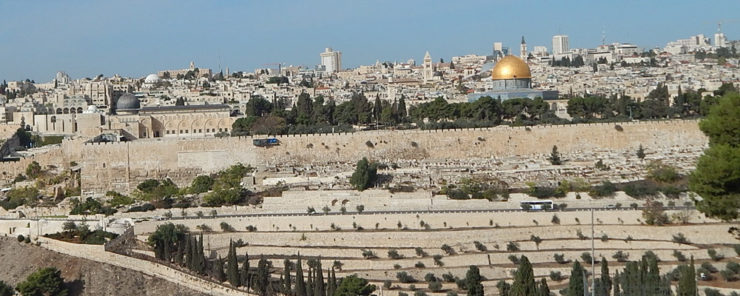The prophecy of Zechariah is dated somewhere between 500 and 525 years before Christ was born in Bethlehem. With pinpoint accuracy, Zechariah details an important experience that Christ will fulfill precisely as Zechariah predicted it hundreds of years earlier. To date, no one has ever offered any reasonable explanation for the prophecy other than what it seems to be predicting and its subsequent fulfillment. Here is what Zechariah said in 9:9, “Rejoice greatly, O daughter of Zion; shout, O daughter of Jerusalem; behold, thy king cometh unto thee. He is just and having salvation, lowly, and riding upon an ass and upon a colt, the foul of an ass.” There it is, and here Christ was five hundred years later, approaching Jerusalem. And, on what is He sitting? The foul of an ass, a young donkey on which no one had ever before sat.
The occasion was what we celebrate as Palm Sunday, so-called because of the palm branches people had strewn in the pathway of Jesus as He made His entry into Jerusalem. Could anything have been more dramatic? Some in the crowd thought Jesus was coming to Jerusalem to take over. That’s why they shouted, “Hosanna, hosanna to the Son of David.” Well, what did that mean? “Hosanna” in Hebrews means “save now, deliver now, rescue now.” What? Save, deliver, rescue who from what? Save, deliver, rescue the Jewish people of Israel from the hated Romans who had conquered them and now dominated and occupied the Jews’ beloved Holy Land. This was their expectation of the Messiah, and now Jesus of Nazareth is coming to Jerusalem to do that very thing.
But Jesus had a different agenda, a far different agenda. He knew what awaited Him. It’s why He wept profusely before He arrived in town. As He neared the city, He beheld it, saying, “Jerusalem, Jerusalem, how I would have gathered you together as a hen gathers her chicks; but you would not. If you only knew the things that belong to your peace. If only you knew that this is your day of visitation, but, now, these things are hidden before your eyes.” Tragic! This was not, as it is often called, the “Triumphal Entry”. It was a tearful entry. The crowds that thronged His pathway saw it as triumphal, victorious. And, indeed, it would be triumphant, but the triumph would be in the victory Christ would achieve over sin as He, who knew no sin, was made to be sin in our place. Not the kind of Jerusalem expected, but precisely the kind of triumph the whole world needed.
CC-03-18


Published by